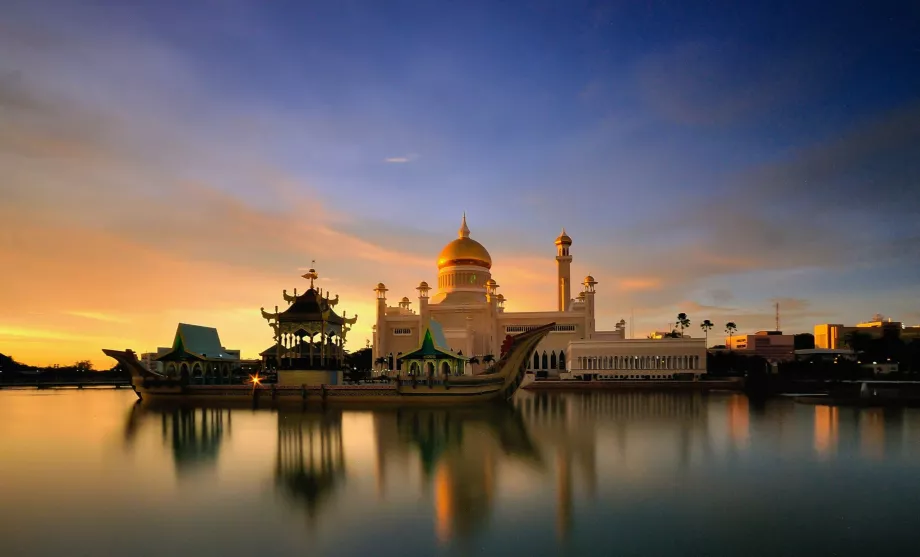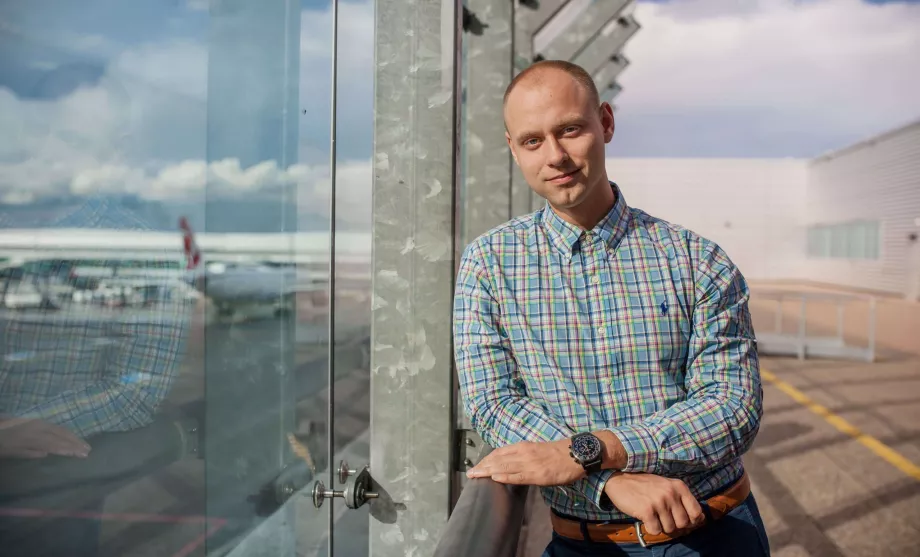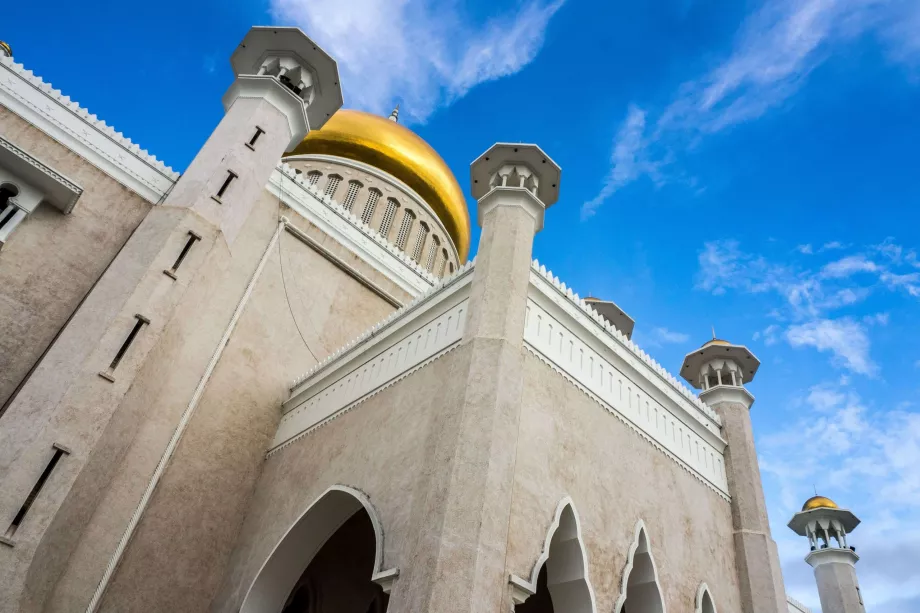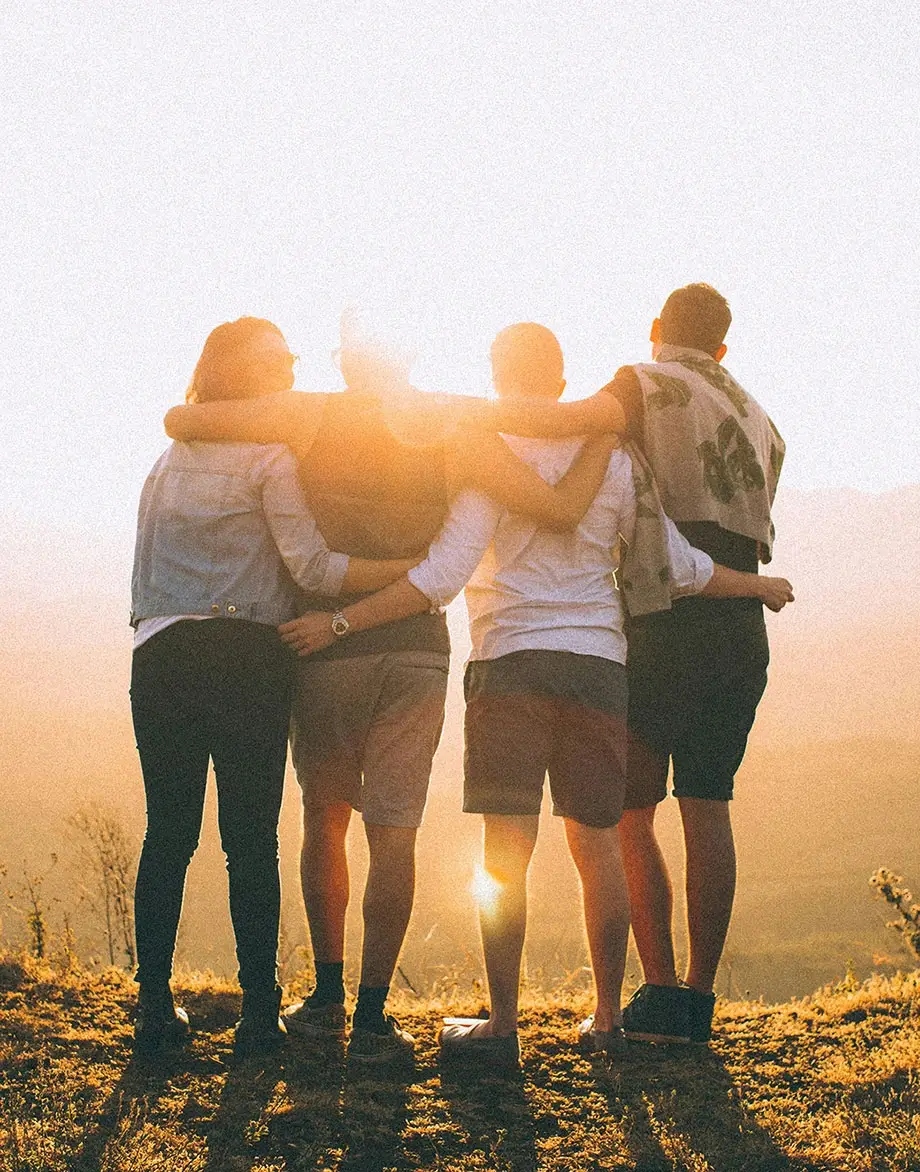Culture and history of Brunei Darussalam

How easy is it to speak English in Brunei? What are Bruneians like and when are shops closed in Brunei?
View the best hotels in Brunei
Language
Malay is the only official language in Brunei, but the education system in Brunei has been bilingual since 1985, with English being taught widely alongside Malay.
That's why you can understand English in Brunei without any problems. English is also widely used in official documents or at the offices, so if you need to deal with anything other than tourist matters in Brunei, you can speak English everywhere.
People
Brunei is a small country with a population of around 450,000. The population is increasing slightly all the time, mainly through immigration from Malaysia or China, as Brunei is one of the very developed and wealthy countries.
The ethnic composition of the population follows the location of the country. Malays make up 67 % of Brunei's population, descendants of indigenous tribes 20 % and Chinese about 9 %.
Indian, Arab and Indonesian minorities are numerous.
Bruneians are generally very friendly people with an international outlook and good education. Tourists are welcome in Brunei.
As Bruneian society is quite modern, you will feel very comfortable as a tourist here. You will not encounter pushy vendors, homeless people or overly inquisitive stares.
If you need advice, the Bruneians will be very willing to talk to you, but if you indicate that you don't want to talk further, the locals will respect that.
Religion
Islam is the official religion of the Sultanate of Brunei. It has been enshrined in the local constitution, including very controversial laws against, for example, homosexuality, which officially carries the death penalty. However, it is not actually enforced.
The head of the Islamic faith in the Sultanate is His Sultanate Highness. Islam plays a central role in society and law here. Despite some (from a Western point of view) very controversial laws, draconian punishments are only applied in cases of drug trafficking, human trafficking, rape or murder.
No real sanctions are applied (especially against tourists) for other offences against Islamic law.
Although Islam is the state religion, it is clear at first sight that conditions here are noticeably more relaxed than, for example, in Arab countries.
While many women wear headscarves, many women dress in conventional Western style.
Other religions in Brunei also have a free rein and are not oppressed in any way.
The religious distribution of the population in Brunei is as follows:
- Muslims - 83%.
- Christians - 7%.
- Buddhists - 7%
- Atheists and indigenous religions - 3 %
Holidays and shop opening hours
Shops are normally open every day from about 6:30am to 10pm, but some supermarkets in Bandar Seri Begawan are open until midnight.
All shops, attractions, offices and services are closed on Fridays between 12:00 and 14:00.
Some offices, private health organisations and the post office also remain closed on Sundays.
Public holidays in Brunei
Banks, offices and some services are closed on public holidays. However, public transport runs unchanged on public holidays and grocery shops are usually open.
Public holidays:
- 1 January - New Year
- 23 February - UK Independence Day
- 31 May - Armed Forces Day
- 15 July - Sultan's Birthday
- 25 July - Christmas Day (a public holiday despite Brunei being an Islamic sultanate)
There are also major floating holidays tied to the lunar year, so they are on different dates each year.
- Ramadan - the Islamic fasting month
- Chinese New Year - 1st day of the new lunar year
Visit Brunei during Ramadan
The majority of Brunei's residents are practicing Muslims and therefore visiting during Ramadan has its own specifics.
Shops (including supermarkets selling food) are normally open all day.
Many restaurants also remain open all day, but only sell takeaway food. It is not advisable to eat or drink in public, so ideally take food to your hotel during the day.
All restaurants open after sunset.
Access to mosques may be restricted, but trips to the jungle and Ulu Temburong National Park, for example, operate without restrictions.
Culture
Bruneians are very nice people living a modern lifestyle.
The streets of the cities are very clean and the state functions on all levels as we know it from developed western countries. For example, you won't find illegal dumps like is common in Thailand or Indonesia.
The Islamic faith is strongly rooted in Brunei, which can be seen in the beautiful ornate mosques you will find in many places.
However, Islam in Brunei cooperates with the modern way of life, and if someone does not want to live according to the rules of Islam, they are not forced to.
The most watched sport in Brunei is football.
The second most popular sport in Brunei has purely indigenous roots. Silat is a martial art widespread in Indonesia and Malaysia in addition to Brunei. Hundreds of different schools attempt to combine the character development of the wrestler with real fighting, using fists, arms, elbows, knees and foot strikes.
Cockfighting is at home throughout Southeast Asia. In Brunei, however, they take the form of purely private entertainment and any gambling is best forgotten.
Tourism
Tourists head to the sultanate mainly as part of a longer trip around Asia, with Brunei being only a short stop.
Brunei certainly doesn't suffer from 'overtourism', but it does have a fairly well-developed tourist infrastructure. There are several hotels and tourist agencies offering jungle tours in the capital.
You can rent a car at Brunei BWN airport.
History in a nutshell
From the 14th to the 16th century, Brunei was part of the sultanates of Sabah, Sarawak and the lower Philippines.
In the 19th century, Brunei became a hotbed of colonial wars, a target and headquarters for pirates. In 1847, the Sultan entered into an alliance with Great Britain and by 1888 Brunei became a British protectorate.
In 1906, a system of settlement was introduced in the country. British citizens were allowed to settle the country under the 1906 Supplementary Protection Treaty. They established farms and trading companies and introduced intensive cultivation of rice and tropical fruits. Between 1941 and 1945, the country was occupied by the Japanese army.
In 1959, the country was reunified and a constitution was also created to guarantee the existence of a local government. In 1971, the political situation in the country was completed. Thus, complete independence was achieved in both international and domestic affairs.
In 1967, Sultan Haji Sir Muda Omar Ali Saifuddien abdicated his office in favour of his son, the late Sultan Pengiran Muda Mahkota Hassanal Bolkiah.
On 1 January 1984, the Sultanate was officially established and the Sultan also accepted the positions of Prime Minister, Minister of Finance and Minister of Foreign Affairs.
Geography
Brunei is divided into four districts:
- Tutong,
- Brunei/Muara,
- Belait,
- Temburong.
The capital of the sultanate is Bandar Seri Begawan with an area of 16 square kilometers. The famous water house (Kampong Ayer) of Brunei is located in this city.
Brunei consists of two closely adjacent but landlocked territories (a road bridge runs between them, however), most of the country is lowland and covered in dense rainforest.
The highest mountain, Pagon Peak, reaches a height of 1 850 metres but is inaccessible to the average tourist and is located in impenetrable jungle on the border with Malaysia.
Any questions left?
If you have any questions or comments about the article...


